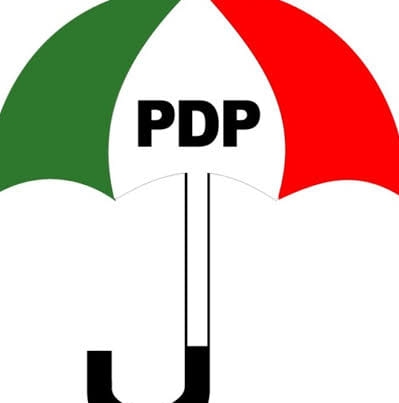Is the PDP still a credible alternative Nigerian government?
Published on Monday 15 March 2021 Back to articles
Nigeria’s main opposition, the Peoples Democratic Party (PDP), is not being taken seriously when it comes to national issues. Its internal wrangling, caused by battles for supremacy, is tearing it apart and weakening its capacity to become a credible alternative government.
In the Southwest this is between the region’s only current governor, Oyo State’s Seyi Makinde (b.1967), and Ekiti State’s former 2014-2018 governor, Ayo Fayose (b.1960) who was also the only one at that time. The two are now fighting over who should be seen as the PDP’s regional leader and this has led to the creation of two separate factions. Fayose has threatened to work against Makinde’s re-election in 2023 because the latter refused to recognise him as the party’s regional leader.
Fayose is suspected to be working to deliberately undermine the PDP in the Southwest where Makinde’s performance is harming the party’s popularity. He is reportedly protecting the interest of Bola Ahmed Tinubu — the ruling All Progressives Congress’ (APC) national leader and former Lagos State governor — who is the current frontrunner in the race for the Presidency in 2023. Makinde’s increasing prominence and his efforts to reunite the PDP factions in the Southwest are a threat to Tinubu’s ambitions and he is therefore using Fayose to undermine the PDP in the region.
Fayose has an incentive to do so because the Economic and Financial Crimes Commission (EFCC) is currently prosecuting him over allegations of money laundering and, if convicted, he could spend years behind bars. If anyone has deep connections within the Nigerian judiciary, however, it is Tinubu and he probably has sufficient influence to overturn a case. The speculation is that Fayose may have reached a deal with Tinubu to undermine the PDP in the Southwest in order to ensure that he does not go to jail. So far, all efforts to reconcile Fayose and Makinde have failed.
Meanwhile, the party’s leadership in the Southeast is similarly divided. Loyalists of Dave Umahi (b.1963) — Ebonyi State’s governor who defected from the PDP to the APC last year — have been fighting the bid by the PDP’s national leadership to remove the latter from their positions and this has created a crisis in the region’s party. In the South-South, party members continue to complain about the overbearing dominance of Rivers State’s Governor Nyesom Wike (b.1963) in the PDP’s affairs. Even at the national level, one faction wants party chairman, Uche Secondus (b.1955) to step down because they blame him for the various crises that are affecting the PDP’s performance. Even though his tenure does not end until December 2021 there are those demanding that Secondus step down now and make way for an interim administration to manage the party until a convention is held later in the year.
In a bid to douse the rising internecine tensions in the party it has established a reconciliation committee headed by the 2015-2019 Senate president Bukola Saraki. It has been going around the country trying to convince members to bury their differences and stay in the party. Among those he has met are former president Goodluck Jonathan because there are rumours that, before their visit, he was on the verge of defecting to the APC which had been trying to entice him to run for the Presidency in 2023.
Despite this, however, in recent weeks the PDP has lost some prominent members who have defected to the ruling APC. On 16 February, Ogun State’s 1999-2007 governor, Gbenga Daniel (b.1956) — who also served as chairman of Atiku Abubakar’s presidential campaign council — defected in the ‘best interest of his people.’ Dimeji Bankole (b.1969) — the 2007-2011 speaker of the House of Representatives — also announced his defection. Fani Femi-Kayode (b.1960) — a vocal PDP member who served as a spokesperson for President Jonathan and has been a harsh critic of President Buhari — has been seen publicly in the company of prominent APC members. Kogi State’s Governor Yahaya Bello (b.1975) claims that Fani-Kayode has already told him of his intention to defect. There are rumours that some National Assembly members are also preparing to defect to the APC.
The PDP has become a fundamentally weak party and holds little attraction for its current members and is too weak to attract new ones. Its leadership is uninspiring and appears to have run out of ideas on how to rebuild itself into a formidable opposition that is capable of winning back power. Secondus lacks charisma, hardly speaks to the media, and is unable to clearly articulate alternate viewpoints to that of the ruling party. He has failed to demonstrate that he has strong and intelligent opinions on any national issue. The party’s spokesperson also lacks influence and this combination — of a weak leader without strong opinions and a spokesperson without media influence — means that the party is gradually missing its voice in the national discussion.
The PDP could be saved by an implosion in the APC that leads to the defection of some of its key members. A change in leadership during the PDP’s December 2021 party conference could also help if it resulted in the election of more charismatic personalities. For now, however, the party has lost its voice and has let the political stage be dominated by the APC which looks set to retain power beyond 2023.
This excerpt is taken from our Nigeria Politics & Security weekly intelligence report. Click here to receive a free sample copy. Contact info@menas.co.uk for subscription details.


